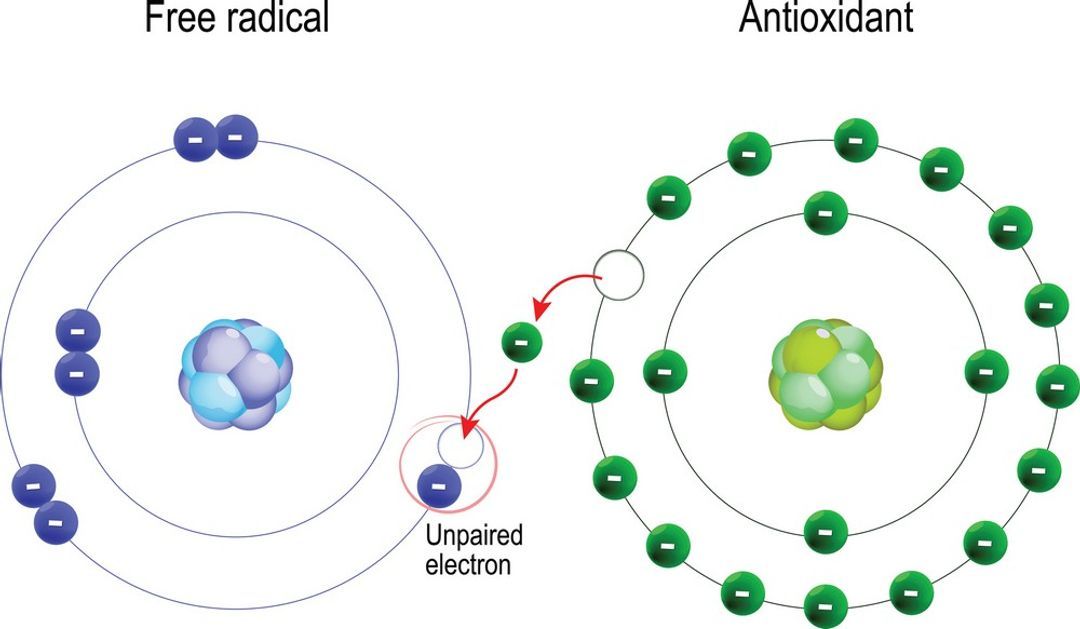Optimal Diet for Health and Longevity: Uncovering the Fountain of Youth

Want to know the healthiest diet for longevity? What is the best diet for overall health? Click here to learn how to live longer and healthier.
Humanity has long been fascinated by the prospect of longevity, a quest to uncover the fountain of youth that spans centuries. Nutrition, amongst other factors, plays a pivotal role in this endeavour, owing to its ability to help the body resist disease, repair damage and optimise physiological functions.
But what is the best diet for longevity? The optimal longevity diet remains a topic of ongoing debate in the scientific community, with various nutritional regimens claiming to hold the key to a longer, healthier life.
This article examines the most promising contenders, drawing on the latest research to discern how to eat to live longer. Keep reading to gain a deeper understanding of how the food choices we make today can shape the quality and quantity of our years ahead.
How Can Diet Impact Longevity?
Understanding the relationship between diet and longevity involves exploring how food choices influence various biological and physiological processes. The foods we consume can either promote health and longevity or foster the development of life-shortening diseases.
 At a molecular level, diets high in antioxidants can counteract oxidative stress, a key factor in ageing and chronic diseases. Oxidative stress results from an imbalance between free radicals (molecules with unpaired electrons) and the body's ability to neutralise them, leading to cellular damage. Antioxidants neutralise these free radicals, thus mitigating their damaging effects.
At a molecular level, diets high in antioxidants can counteract oxidative stress, a key factor in ageing and chronic diseases. Oxidative stress results from an imbalance between free radicals (molecules with unpaired electrons) and the body's ability to neutralise them, leading to cellular damage. Antioxidants neutralise these free radicals, thus mitigating their damaging effects.
Diet also plays a crucial role in inflammation, another major player in ageing and chronic disease. Foods high in saturated fats and sugars can stimulate inflammation, while diets rich in fruits, vegetables, whole grains, healthy fats and lean proteins can reduce inflammation.
Moreover, certain diets can influence our gut microbiota – the trillions of microorganisms residing in our gut. Emerging research suggests that a diverse and balanced gut microbiota is linked with health and longevity, while imbalances (known as dysbiosis) may contribute to chronic diseases like obesity, diabetes and heart disease [1]. Diets rich in fibre nourish these beneficial gut bacteria, promoting a healthier microbiota.
Dietary patterns also affect metabolic health, including glucose regulation and cholesterol levels. Diets high in refined carbohydrates and sugars can lead to insulin resistance, a precursor to type 2 diabetes.
Conversely, diets rich in whole grains, fruits and vegetables can improve blood sugar control and insulin sensitivity. Similarly, diets high in saturated and trans fats can raise harmful LDL cholesterol levels, while those rich in unsaturated fats can promote beneficial HDL cholesterol levels, impacting heart health and longevity.
Eating for Longevity: How to Live Longer and Healthier
 The Mediterranean Diet
The Mediterranean Diet
Historically, one of the most endorsed diets for longevity is the Mediterranean diet. This dietary pattern, characteristic of regions around the Mediterranean Sea, emphasises fruits, vegetables, whole grains, legumes, nuts and olive oil, with moderate consumption of fish, poultry and red wine and minimal intake of red meat.
The diet's foundation on plant-based, antioxidant-rich foods that reduce inflammation and oxidative stress, coupled with healthy monounsaturated fats from olive oil, underpin its health benefits.
A 2018 review in the British Medical Journal revealed that adhering to a Mediterranean diet could reduce the risk of developing conditions linked with premature death, such as heart disease and cancer [2]. The research further elucidated that high-risk individuals following a Mediterranean diet supplemented with extra virgin olive oil or nuts had a 30% lower risk of major cardiovascular events. Thus, the Mediterranean diet presents a compelling case for longevity.
The Blue Zones Diet
Complementing the Mediterranean diet, the Blue Zones diet emerges from regions with the highest concentration of centenarians. Blue Zones include Okinawa (Japan), Sardinia (Italy), Nicoya (Costa Rica), Icaria (Greece), and among Seventh-day Adventists in Loma Linda, California. The common dietary characteristics amongst these populations entail plant-centric diets, high legume intake and moderate alcohol consumption (mainly wine).
Remarkably, these populations share not only a high life expectancy but also a lower incidence of chronic diseases like heart disease and cancer. A longitudinal study from Okinawa noted that their traditional diet, low in calories but high in nutrients, contributed significantly to their exceptional longevity [3]. The Blue Zones diet, thus, provides substantial evidence for its efficacy in promoting longevity.
The Plant-Based Diet
 Plant-based diets, including vegetarian and vegan diets, have gained recognition for their potential to enhance longevity. These diets are rich in fruits, vegetables, legumes, whole grains and nuts, providing a wealth of antioxidants, fibre and phytochemicals that combat inflammation and oxidative stress.
Plant-based diets, including vegetarian and vegan diets, have gained recognition for their potential to enhance longevity. These diets are rich in fruits, vegetables, legumes, whole grains and nuts, providing a wealth of antioxidants, fibre and phytochemicals that combat inflammation and oxidative stress.
A comprehensive review in the Journal of Geriatric Cardiology suggested that plant-based diets might extend lifespan by reducing the risk of chronic diseases, notably cardiovascular disease and cancer. Moreover, vegetarian populations had a 12% lower risk of death than non-vegetarians [4].
The Nordic Diet
Inspired by foods traditionally sourced from Denmark, Finland, Iceland, Norway and Sweden, the Nordic diet shares similarities with the Mediterranean diet but has a distinctive northern twist. This dietary pattern emphasises whole grains (particularly oats and rye), berries and other fruits, vegetables (especially cabbage and root vegetables), legumes, fish and rapeseed (canola) oil.
A study published in the Journal of Internal Medicine reported that the Nordic diet lowered cholesterol levels and inflammation markers in individuals with metabolic syndrome, a cluster of conditions that increase the risk of heart disease, stroke and type 2 diabetes [5]. Thus, like the Mediterranean diet, this diet promotes heart health, potentially contributing to a longer lifespan.
 The Flexitarian Diet
The Flexitarian Diet
The Flexitarian or 'flexible vegetarian' diet is primarily plant-based but allows for occasional meat and other animal products in moderation. It encourages a high intake of fruits, vegetables, legumes and whole grains while limiting processed foods and sweets.
In a study published in Frontiers in Nutrition, a flexitarian diet was associated with lower risks of heart disease, high blood pressure, diabetes and cancer, further supporting its potential role in promoting longevity [6]. It may also be a more sustainable and realistic option for individuals who find completely plant-based diets too restrictive, offering a balanced approach to healthy eating.
The Traditional Okinawan Diet
The Okinawan diet originates from the Okinawa islands of Japan, home to some of the world's longest-living individuals. This traditional diet is low in calories but rich in nutrients, primarily plant-based, with a high intake of sweet potatoes, green and yellow vegetables, soybean-based foods, and a moderate amount of fish and lean meats.
One of the defining characteristics of the Okinawan diet is its lower caloric content relative to its high nutritional value, a concept referred to as 'Hara Hachi Bu' or eating until 80% full. This practice encourages mindful eating and may contribute to the observed caloric restriction, which has been associated with increased lifespan.
A study in the Asia-Pacific Journal of Public Health suggested that adhering to the traditional Okinawan diet could decrease the risk of age-associated diseases and increase healthy life expectancy [7].
The diet's high content of flavonoids, carotenoids and omega-3 fatty acids, combined with lower levels of saturated fat and low-glycemic-load carbohydrates from root vegetables and legumes, makes it heart-healthy and anti-inflammatory.
The Role of Caloric Restriction in the Longevity Diet
 Beyond specific diets, caloric restriction – reducing caloric intake without malnutrition – has been consistently linked with longevity.
Beyond specific diets, caloric restriction – reducing caloric intake without malnutrition – has been consistently linked with longevity.
Animal studies have long demonstrated lifespan extension with caloric restriction, and recent human studies echo these findings. For instance, a study published in Cell Metabolism found that a low-calorie diet over two years improved biomarkers associated with longevity and reduced inflammation [8].
While implementing long-term caloric restriction in real-world settings poses significant challenges due to its rigidity, intermittent fasting (periods of regular eating interspersed with periods of fasting) has garnered attention. Studies suggest that intermittent fasting, akin to caloric restriction, may improve metabolic health and potentially extend lifespan [9].
Personalised Nutrition for Longevity
As we explore the promising pathways to longevity, it is crucial to acknowledge the fast-evolving field of personalised nutrition, a frontier that could redefine our understanding of the 'best' longevity diet.
Unlike traditional dietary guidelines that offer general advice, personalised nutrition recognises the role of individual biological differences in shaping dietary responses. It considers genetic variations, epigenetic markers, metabolic profiles and even the composition of our gut microbiota – the rich ecosystem of microorganisms inhabiting our gut – to tailor nutritional advice uniquely suited to each individual.
 This bespoke approach has profound implications for longevity. By understanding how our unique biology interacts with different foods, personalised nutrition can help us optimise our nutrient intake, target specific health concerns and potentially slow the ageing process.
This bespoke approach has profound implications for longevity. By understanding how our unique biology interacts with different foods, personalised nutrition can help us optimise our nutrient intake, target specific health concerns and potentially slow the ageing process.
Although the field is still relatively new, preliminary research indicates that personalised diets based on individual metabolic responses can improve health outcomes compared to traditional dietary advice [10].
Moreover, personalised nutrition could also address the challenge of diet-related chronic diseases, which are a significant barrier to longevity. Tailored dietary advice could help manage conditions like diabetes, heart disease and obesity, thereby contributing to increased lifespan and improved quality of life.
Conclusion
Having explored the role of diet in longevity, it becomes evident that our food choices are a significant, yet nuanced, determinant of our healthspan and lifespan.
The Mediterranean, Blue Zones, plant-based, Nordic, Okinawan and flexible vegetarian diets are each rooted in diverse cultural traditions and unique nutritional profiles. However, they all underscore the importance of whole, nutrient-dense foods: high consumption of fruits, vegetables, whole grains, healthy fats, moderate protein intake, and limited processed foods and sugars.
In the pursuit of longevity, it's clear that there is no 'one-size-fits-all' diet. Instead, adopting proven dietary patterns and harnessing the potential of personalised nutrition seems to be the most promising approach.
As scientific advancements continue to shed light on the complex interplay between diet and longevity, we can look forward to more precise, personalised guidance that can help us live not just longer but healthier and more fulfilling lives.
Take Care of Your Health with GlycanAge
As we contemplate the future of longevity, it is worth noting the emerging tools that are enabling more personalised approaches to health and nutrition. One such tool is GlycanAge, a groundbreaking biological age test that offers deeper insights into our health than traditional chronological age.
GlycanAge is based on the analysis of glycans, complex molecules that cover the surface of our cells and modulate their interaction with other cells and molecules in the body. Changes in the structure of these glycans have been linked with inflammation, a key driver of ageing and age-related diseases.
Thus, by assessing the state of our glycans, the GlycanAge test provides a measure of our biological age (the age of cells and organs within the body) – a more accurate indicator of our health and potential longevity than our chronological age (the number of years since birth).
The benefits of knowing one's GlycanAge are manifold. Firstly, it can serve as a wake-up call, highlighting the need for lifestyle changes if your biological age is higher than your chronological age. Secondly, by retesting your GlycanAge after implementing healthful changes (like adopting a longevity diet), you can monitor the effectiveness of these interventions, offering motivation and tangible evidence of progress.
 Once you’ve ordered your home testing kit, all you need is to take a small blood sample and mail it back to the lab for analysis. It’ll take 3-5 weeks to complete comprehensive tests and return a personalised report on your results.
Once you’ve ordered your home testing kit, all you need is to take a small blood sample and mail it back to the lab for analysis. It’ll take 3-5 weeks to complete comprehensive tests and return a personalised report on your results.
You will also receive complimentary 1-1 consultations with a scientist and/or healthcare professional to understand your results and make a plan to improve your overall wellness as you get older.
With various price points and payment plans available, there is an option to suit each person who wants an accurate, reliable and affordable way to determine their health. Individuals interested in understanding their health at a deeper level and taking proactive steps towards longevity can order a GlycanAge test and begin their wellness journey today.
References
- https://www.nature.com/articles/s41575-018-0061-2
- https://www.nature.com/articles/ejcn201758
- https://www.tandfonline.com/doi/abs/10.1080/07315724.2009.10718117
- https://academic.oup.com/ajcn/article/100/suppl_1/353S/4576455?login=false
- https://onlinelibrary.wiley.com/doi/full/10.1111/j.1365-2796.2010.02290.x
- https://www.frontiersin.org/articles/10.3389/fnut.2016.00055/full
- https://www.sciencedirect.com/science/article/abs/pii/S0047637414000037
- https://academic.oup.com/biomedgerontology/article/70/9/1097/2949096
- https://www.nejm.org/doi/full/10.1056/nejmra1905136
- https://www.sciencedirect.com/science/article/pii/S0092867415014816



